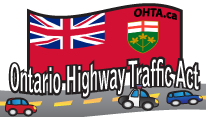Hello All, Thanks for your replies. Street racing and stunt driving are laws on 2 different levels. Street racing (in a contest on public highways) is a sub section under dangerous driving in the Criminal Code - Canadian Law Stunt driving is in the Ontario Highway Traffic Act - Provincial law So that bring me back to the Charter S.11g Street racing is constituted as an offence under Canadian law; making siezure on the spot justified Stunt driving is not constituted as an offence under Canadian law, only the province of Ontario; making siezure a violation of a Charter right And as far as I know, if any provincial law conflicts with a section of Canadian law, Canadian law supersedes it. I think thats going back to the British-North America Act As for section 1 of the Charter, I would focus on the "prescribed by law as can be demonstrably justified". And I understand that, but I see that as Canadian law - as in the Criminal Code. If its precribed as justified law Canda wide, then it can be a written law that infringes on a right when necessary. But for a province to set laws to which its penalties violate a Charter right, I dont think section 1 covers that. - In my opinion I am pretty sure driving under the influence is Criminal Code, which would be a justified siezure. But now that I think about it, according to Criminal Code, is driving under the influence 0.08 BAC or 0.05 BAC Because I know it was lowered to 0.05 and you get a lesser penalty, but is that Canadian law or Ontario law? If its Ontario law, maybe that 0.05-0.08 suspension is a violation of S.11g too. Im not 100% sure what the charge is and what the immediate penalties are, but maybe thats worth looking in to. But Im not a fan of drinking and driving, so I wouldnt have the same fight to give that argument I think some roadside siezures are necessary, just not the ones that violate a Charter right. I believe if you've violated a section of criminal code (street racing/drinking and driving) then S.11g doesnt apply and you can be assumed guilty on the spot; any other situation I believe is a huge violation. And to what "ynotp" said Bottom line is do you really want to live in a country where a police officer is empowered to be judge, jury and executioner? What if the officer made an honest mistake in identifying the speeding vehicle? This is what Im affraid of and that is what I see happening with this.
Hello All,
Thanks for your replies.
Street racing and stunt driving are laws on 2 different levels.
Street racing (in a contest on public highways) is a sub section under dangerous driving in the Criminal Code - Canadian Law
Stunt driving is in the Ontario Highway Traffic Act - Provincial law
So that bring me back to the Charter S.11g
Street racing is constituted as an offence under Canadian law; making siezure on the spot justified
Stunt driving is not constituted as an offence under Canadian law, only the province of Ontario; making siezure a violation of a Charter right
And as far as I know, if any provincial law conflicts with a section of Canadian law, Canadian law supersedes it. I think thats going back to the British-North America Act
As for section 1 of the Charter, I would focus on the "prescribed by law as can be demonstrably justified". And I understand that, but I see that as Canadian law - as in the Criminal Code. If its precribed as justified law Canda wide, then it can be a written law that infringes on a right when necessary.
But for a province to set laws to which its penalties violate a Charter right, I dont think section 1 covers that. - In my opinion
I am pretty sure driving under the influence is Criminal Code, which would be a justified siezure.
But now that I think about it, according to Criminal Code, is driving under the influence 0.08 BAC or 0.05 BAC
Because I know it was lowered to 0.05 and you get a lesser penalty, but is that Canadian law or Ontario law? If its Ontario law, maybe that 0.05-0.08 suspension is a violation of S.11g too.
Im not 100% sure what the charge is and what the immediate penalties are, but maybe thats worth looking in to. But Im not a fan of drinking and driving, so I wouldnt have the same fight to give that argument
I think some roadside siezures are necessary, just not the ones that violate a Charter right.
I believe if you've violated a section of criminal code (street racing/drinking and driving) then S.11g doesnt apply and you can be assumed guilty on the spot; any other situation I believe is a huge violation.
And to what "ynotp" said
Bottom line is do you really want to live in a country where a police officer is empowered to be judge, jury and executioner? What if the officer made an honest mistake in identifying the speeding vehicle?
This is what Im affraid of and that is what I see happening with this.


